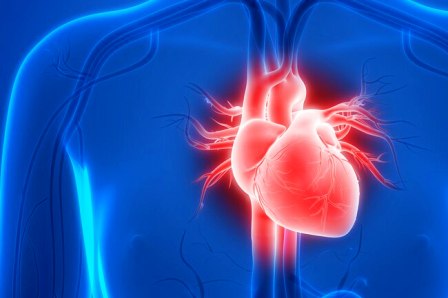Is it safe to engage in sex after a heart attack, heart surgery or a cardiac catheterization? While sex can be important to quality of life, it’s not usually too big a deal for your heart.
“It’s the same amount of energy or strength that a heart needs to walk a mile on a flat surface in 20 minutes or climbing two flights of stairs in 10 seconds,” said Tiny Jaarsma, a nurse and professor of caring sciences at the Faculty of Health Sciences of the University of Linköping, Sweden. “If your heart can manage that, [it] can manage sexual activity again.”
Patients often want to know if their medication or pacemaker could cause problems, Jaarsma said. They also want to know when it’s safe to have sex again, and any issues related to sexual performance. Getting face-to-face information from a health care provider is the best choice, even if that seems embarrassing, because getting concerns out in the open can lead to reliable information.
“Patients are often relieved to talk about it, the elephant in the room sort of thing, where nobody dares talk about it,” Jaarsma said. “Sometimes talking is enough, or they may need treatment.”
Surgeries and Procedures
Surgical procedures may leave wounds that need to heal before patients resume sex. “If someone has had open-heart surgery — so the sternum has been cut — it is important to watch the healing of the wound. If that wound is completely healed, usually six to eight weeks, then people can safely resume sex again,” Jaarsma said.
In general, implanted devices — pacemakers, ICDs or stents — don’t pose a risk, as long as patients are stable and don’t have problems with them such as multiple shocks from an ICD.
“Of course, we always warn patients and their partners that if they feel symptoms, like chest pain, shortness of breath or dizziness, then they have to stop,” Jaarsma said. “That’s when you need to call your doctor or other health care professional and find out what you can do. It may be as simple as taking your nitroglycerin tablet before sex if you have angina.”
Medications
Some heart medicines can be associated with sexual dysfunction, causing different issues for men and women. Men may be concerned with erectile dysfunction, while women may worry about vaginal dryness or loss of libido.
“So, I investigate a little: ‘Did you have any problems before starting the medicine?’ Sometimes, we lower the dose or switch to another medication,” Jaarsma. “If the problem persists then we know the problem wasn’t the pill, and we need to look further how to solve the issue.”
Fear, Anxiety and Depression
Depression, anxiety and fear may also cause problems with sexual relationships. “For example, if people have changed roles after a heart attack or as heart failure progresses, that can also influence the relationship so that people feel less sexually attractive,” Jaarsma said. Some partners may feel vulnerable due to lost physical strength and some could feel uncomfortable about their looks due to scars or implanted devices, she said. It is possible and important for both the patient and their partner to address sexual concerns. Talk with your health care provider about receiving sexual counselling.
In general, most heart patients should feel free to have sex, Jaarsma said. Here are her suggestions:
- Choose a time when you are rested and relaxed.
- Have sex in a familiar room.
- Wait at least an hour after a meal to have sex.
- Don’t drink a lot of alcohol.
For a patient with heart failure, some positions are better than others if they’re short of breath. Those with unstable heart failure shouldn’t have sex until they’ve stabilized, Jaarsma said. “If they don’t have too many complaints and their condition did not worsen in the last weeks, if their medications are stable, then they could resume sex. Heart attack survivors without cardiac symptoms during mild to moderate physical activity should wait a week, as should those patients who have undergone coronary revascularization.”
Besides medication, obesity, uncontrolled cholesterol, a sedentary lifestyle and drinking and smoking can contribute to impotence, Jaarsma said. Stay in close touch with your health care provider to keep tabs on these things.
“Your health care provider has the most pertinent information because they have the best medical understanding of your condition. They will be happy to provide information. Instead of suffering alone, suffering with your partner, or trying all kind of strange herbs, just ask professionals.”
Erectile Dysfunction
Erectile dysfunction could be a warning sign of heart disease, according to the American Heart Association.
“Erectile dysfunction may be a marker for cardiac disease and should be investigated,” Jaarsma said. “If there’s already stenosis or calcification in the penile artery, which is very small, it could also be in the coronary arteries. If men have erectile dysfunction and cardiac disease, they can be treated for both.
“People no longer have to give up sex because they have heart disease. This is a new way of thinking. Before, people were a little skeptical and would say, ‘Well, you have survived your heart disease, you should be happy with that.’ Like sex is a luxury. People who have heart disease and erectile dysfunction should also be treated for their erectile dysfunction — if they want to, of course.”
– American Heart Association News

